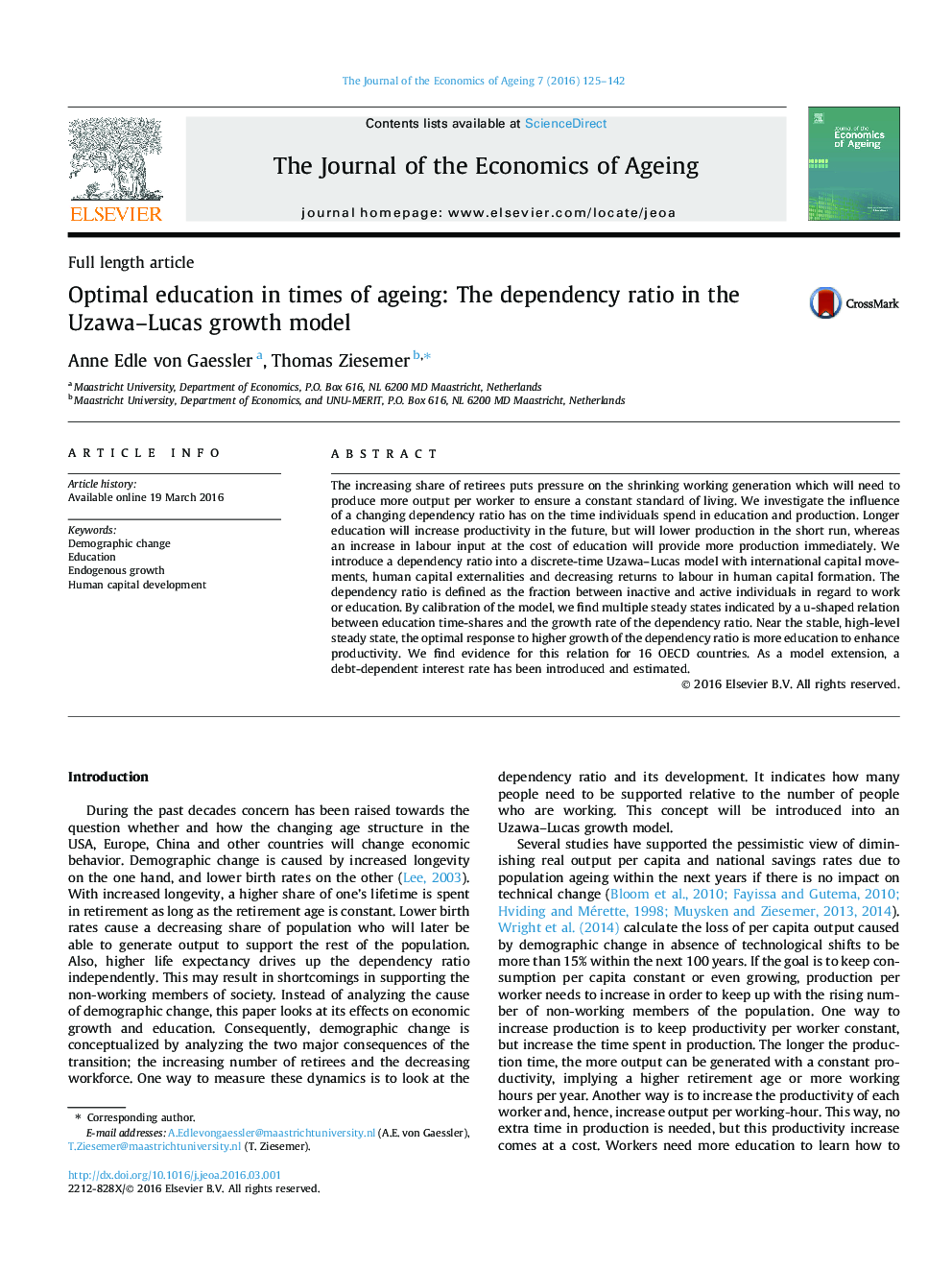| Article ID | Journal | Published Year | Pages | File Type |
|---|---|---|---|---|
| 957823 | The Journal of the Economics of Ageing | 2016 | 18 Pages |
The increasing share of retirees puts pressure on the shrinking working generation which will need to produce more output per worker to ensure a constant standard of living. We investigate the influence of a changing dependency ratio has on the time individuals spend in education and production. Longer education will increase productivity in the future, but will lower production in the short run, whereas an increase in labour input at the cost of education will provide more production immediately. We introduce a dependency ratio into a discrete-time Uzawa–Lucas model with international capital movements, human capital externalities and decreasing returns to labour in human capital formation. The dependency ratio is defined as the fraction between inactive and active individuals in regard to work or education. By calibration of the model, we find multiple steady states indicated by a u-shaped relation between education time-shares and the growth rate of the dependency ratio. Near the stable, high-level steady state, the optimal response to higher growth of the dependency ratio is more education to enhance productivity. We find evidence for this relation for 16 OECD countries. As a model extension, a debt-dependent interest rate has been introduced and estimated.
